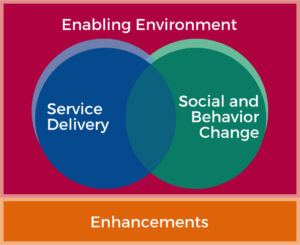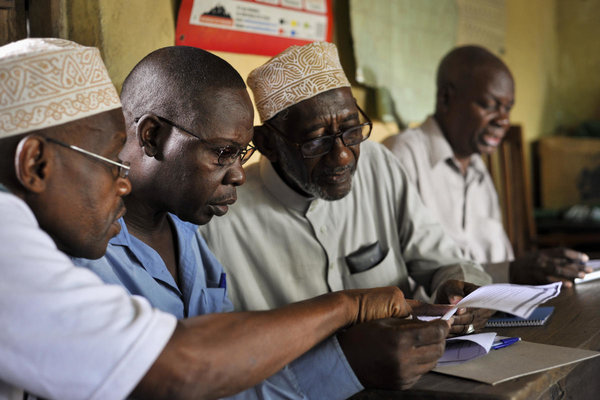What are HIPs?
High Impact Practices (HIPs) are evidence-based family planning practices vetted by experts that are documented in an easy-to-use format. HIPs help practitioners focus resources for greatest impact. Most HIPs also have evidence from various countries along with implementation instructions and monitoring and evaluation guidelines within the content.
There are several types of HIPs knowledge products. This Resource Center for the FPHIPs focuses on HIPs Briefs and HIPs SPGs.
Each brief identifies a specific practice, defines the process, demonstrates impact, and shares implementation tips. They are applicable across settings, scalable, sustainable, and cost-effective. They aid in advocacy, program management, exploration of research gaps and can inform policies and guidelines.
 Briefs are classified as Service Delivery, Enabling Environment, Social and Behavior Change, and Enhancements. Briefs under Service Delivery and Social and Behavior Change are further categorized based on the extent of measurable evidence of their effectiveness as “Proven”, i.e., sufficient evidence exists to prove its impact, and “Promising”, i.e., good evidence exists but more research is required to document its impact.
Briefs are classified as Service Delivery, Enabling Environment, Social and Behavior Change, and Enhancements. Briefs under Service Delivery and Social and Behavior Change are further categorized based on the extent of measurable evidence of their effectiveness as “Proven”, i.e., sufficient evidence exists to prove its impact, and “Promising”, i.e., good evidence exists but more research is required to document its impact.1. Service Delivery
They describe interventions to improve the availability, accessibility, acceptability, and quality of Family Planning services.
2. Social and Behavior Change
They describe approaches to influence knowledge, beliefs, behaviors, and social norms associated with Family Planning.
3. Enabling Environment
They address systemic barriers that affect an individual’s ability to access Family Planning information and services.
4. HIP Enhancement
They are tools or approaches that are not a standalone practice but are used in conjunction with at least two or more HIPs in the other three areas to maximize the impact of HIP implementation or increase the reach and access for specific audiences.
Strategic Planning Guides are intended to lead program managers, planners, and decision-makers through a strategic process to identify the most effective and efficient investments to address the challenge or focus of their program. Guides are developed by technical experts and are intended to help planners identify which HIP or practice might work in your specific context.















